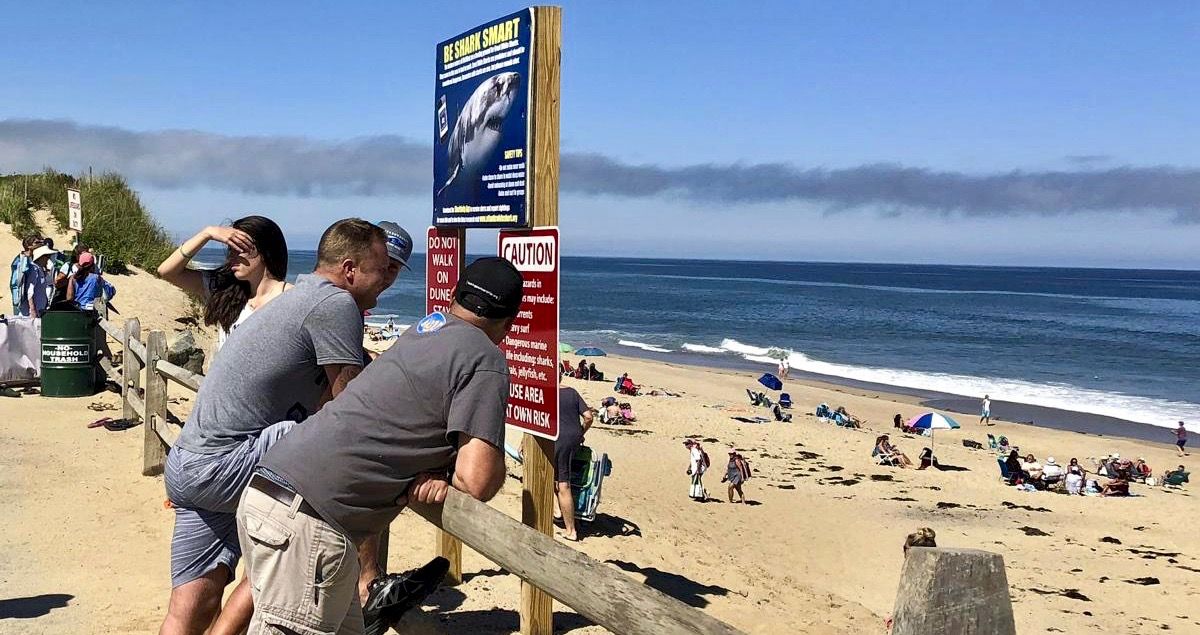Last Saturday, a swimmer at Newcomb Hollow Beach on Cape Cod in Massachusetts died after being attacked by a shark at around noon. This is the first fatal attack on the Cape in more than 80 years. Witnesses said the man and a friend had been boogie boarding 30 yards from the beach when the attack happened.Though Arthur Medici, 26, of Revere, Massachusetts, received first aid and CPR at the beach, he died shortly after at Cape Cod Hospital in Hyannis. According to Bunker Hill Community College, Medici was an engineering student who had enrolled part-time in the spring. Though the official cause of death has not been determined by the medical examiner, Chris Hartsgrove, acting deputy chief of Cape Cod National Seashore, said the injuries indicated Medici was attacked by a shark.Joe Booth, a local fisherman and surfer told CBS that he witnessed the attack from the beach. He said it looked like Medici was kicking at something behind him, but Booth wasn’t sure what it was until Medici’s friend dragged him to shore.Robert Bessler, a Wellfleet resident and surfer told CNN that the attack had sent chills through the local surfing community. "It's like being struck by lightning," said Bessler, 34, who planned to take a temporary break from surfing. "You hear about it. It doesn't seem real. You kind of imagine it'll never be you. It's kind of slowly sinking in that the danger is quite real.â€
"Overall, I don't think there's much you can do about the situation. It's their home, sharks live here and we're not really on their menu, but unfortunately when they do take a test bite and decide we're not on their menu, it just happens to be pretty devastating generally," he added.
With an increase in the local population of gray seals, shark sightings have become increasingly common. A 61-year-old man, standing roughly 30 yards offshore, was wounded by a shark last month in Truro within the boundary of Cape Cod National Seashore.
"I don't know what the town is really supposed to do," Bessler said. "They can't remove the sharks, they can't remove the surfers and they can't remove the seals."
The last fatal shark attack in Massachusetts occurred in 1936, according to the Florida Program for Shark Research at the Florida Museum of Natural History. Gavin Naylor, the program director, said such attacks are "very rare" and that "shark attacks in the summer are a direct consequence of more people and more animals in the water."
Naylor advised people to avoid the water at dawn or dusk and to not swim alone. He also said that the substantial presence of seals and schools of fish moving or jumping could indicate a shark is near. Cape Cod officials have put up warning signs and published brochures warning beachgoers of the danger, Hartsgrove said. The beach was closed to swimmers on Sunday.
RELATED:Â 15 Of The World's Most Spectacular Wild Swimming Locations (5 Infested With Sharks)
“Pretty much every shark bite is an accident,†Naylor added. “It’s mistaken identity.†Usually, sharks confuse humans with prey like seals or fish. According to the International Shark Attack File, there were 88 unprovoked shark attacks worldwide last year, including five fatalities. Most attacks in the US occurred in Florida.

